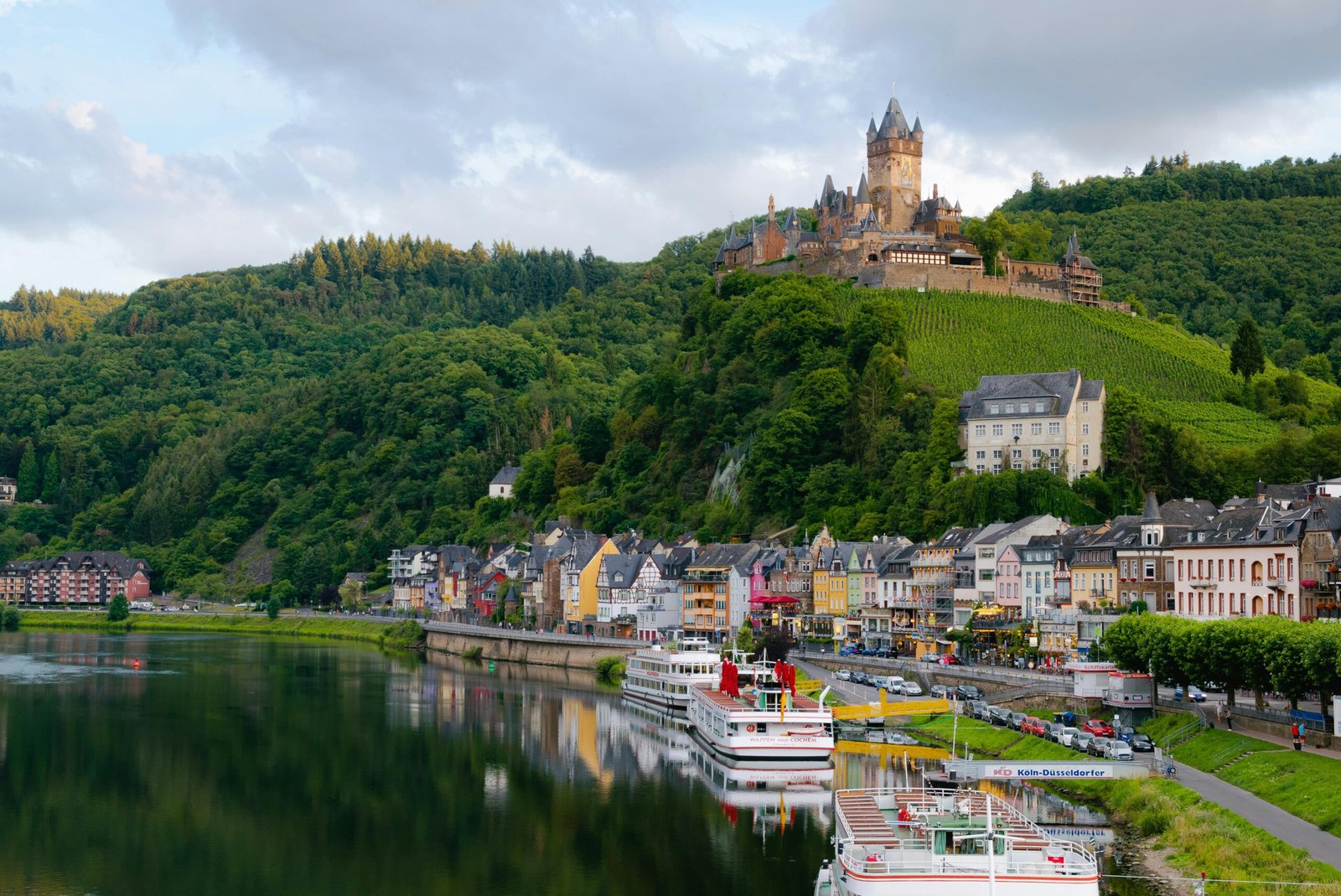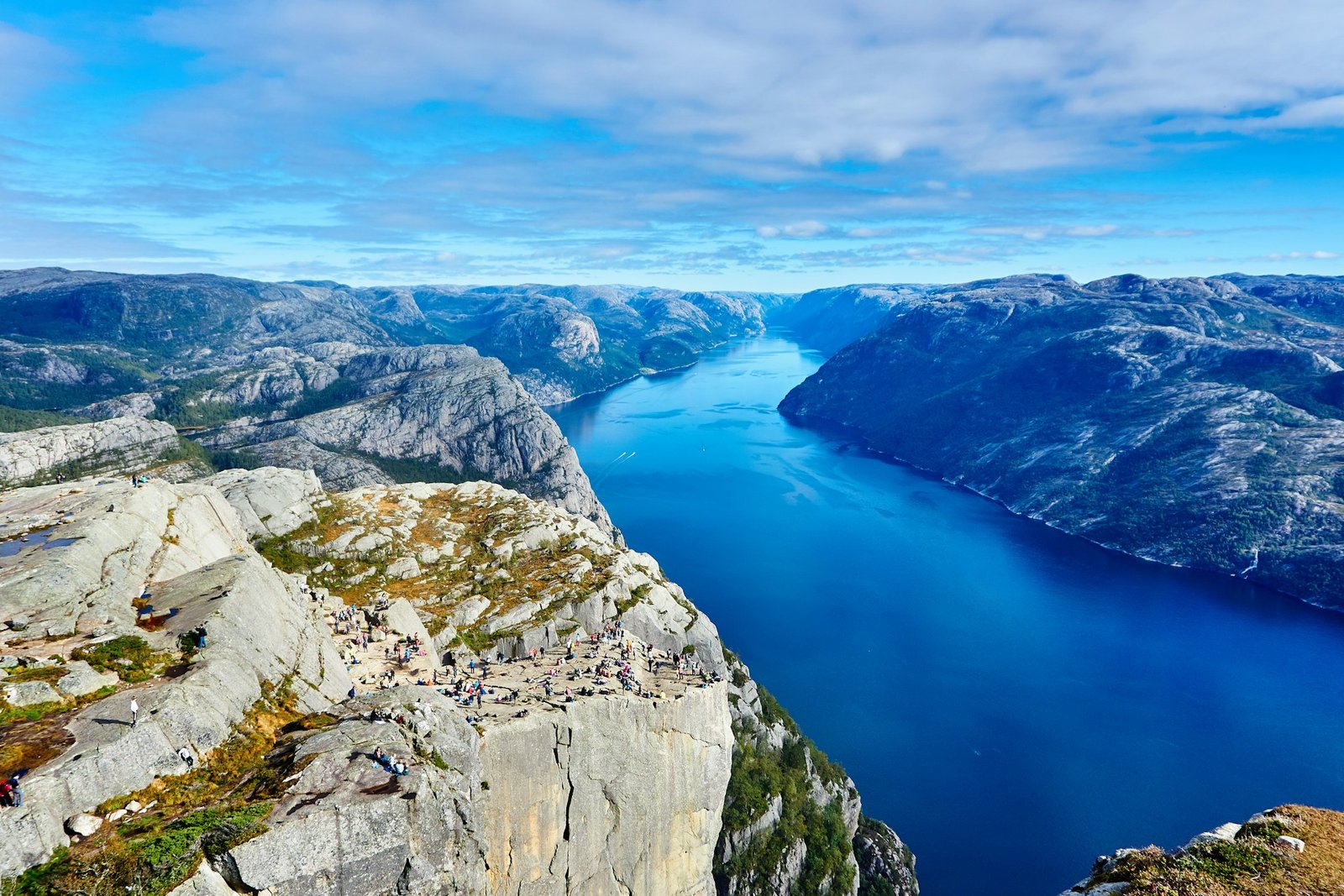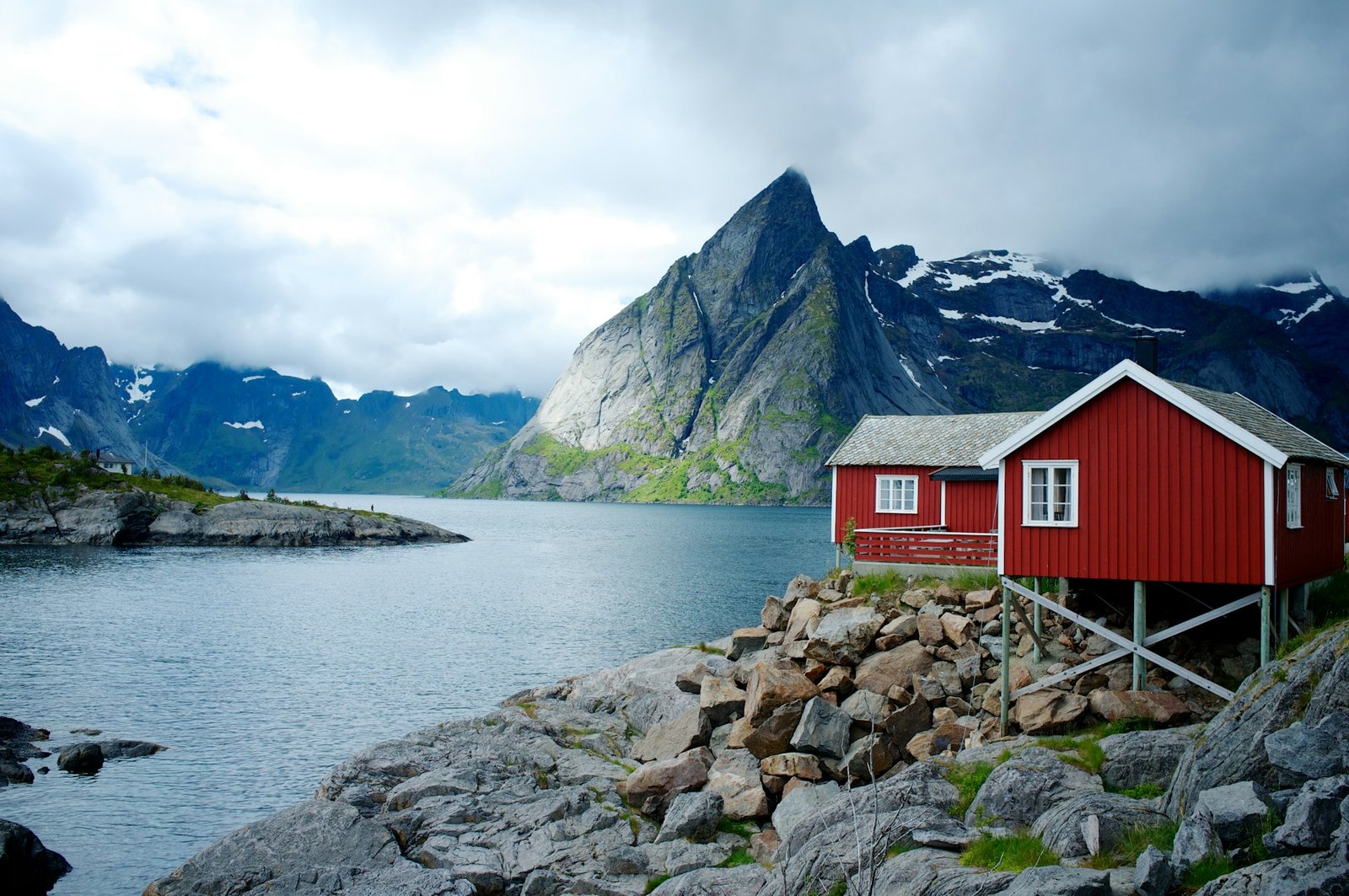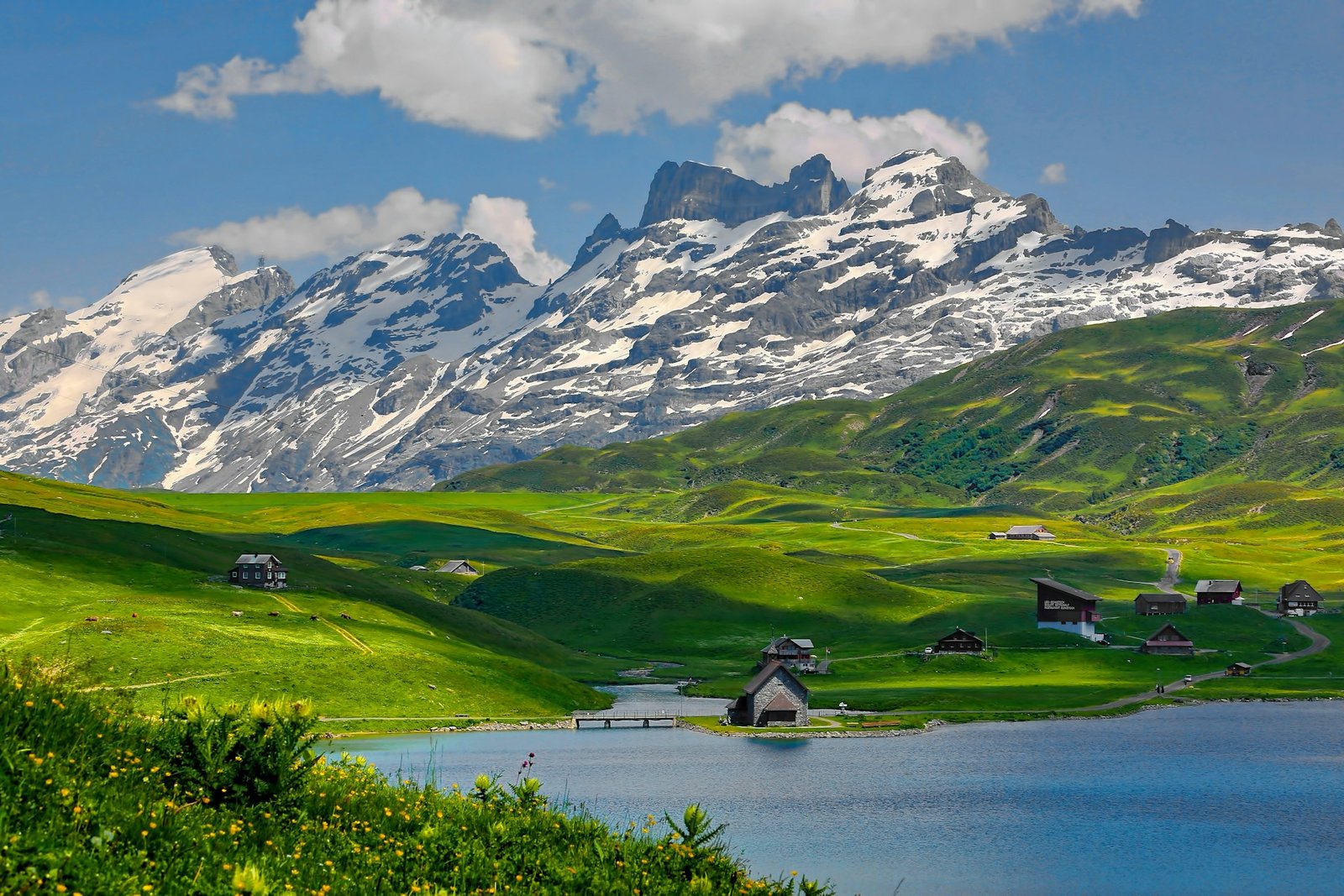Traveling through Europe can be a dream come true, but being a responsible tourist is essential to ensure that dream doesn’t become a nightmare for the locals. With the rise of tourism in places like Venice and Barcelona, these cities are feeling the strain. The good news? You can make a difference. I’ve got 17 practical tips here that will help you navigate Europe in a way that’s not only enriching for you but also respectful and sustainable for the communities you visit.
Quick Guide for Busy Readers:
1. Respect Local Culture: Learn key phrases, dress appropriately, and follow local customs.
2. Support Local Businesses: Shop at markets and eat at family-owned restaurants.
3. Minimize Environmental Impact: Use public transport, reduce waste, and avoid single-use plastics.
4. Avoid Overtourism: Explore lesser-known spots and travel off-peak.
5. Be Mindful of Photography: Always ask before taking photos of people or in sensitive areas.
6. Conserve Water and Energy: Turn off lights, take shorter showers, and reuse towels.
7. Respect Wildlife: Stay on paths, don’t feed animals, and avoid disturbing habitats.
8. Be Cautious with Souvenirs: Skip items from endangered species or those that misrepresent the culture.
9. Stay Informed on Local Laws: Understand local regulations about alcohol, smoking, and more.
10. Limit Noise Pollution: Keep the volume down, especially in residential areas.
11. Participate in Local Activities: Join local events, workshops, and tours led by locals.
12. Offset Your Carbon Footprint: Consider buying carbon offsets for flights or other high-impact activities.
13. Use Digital Maps and Guides: Reduce paper waste by using digital tools.
14. Dispose of Trash Properly: Follow local recycling and waste disposal guidelines.
15. Support Ethical Tourism: Choose tour operators that respect local communities and environments.
16. Educate Yourself About the Destination: Learn the history and significance of places before visiting.
17. Give Back to the Community: Volunteer or donate to local causes.
*Note: This quick guide gives you the essentials. The full post dives deeper with detailed, actionable tips on being a responsible tourist.*
1. Respect Local Culture and Customs
When I travel, I always try to blend in as much as possible. In Europe, this starts with respecting the local culture. Even a small effort to learn phrases like “please,” “thank you,” and “excuse me” in the local language can go a long way. Trust me, locals appreciate it, and it makes your interactions more pleasant.
- Dress for Respect: Especially in religious sites like cathedrals or mosques, dressing modestly isn’t just about fitting in; it shows that you respect the significance of these places. I’ve seen tourists turned away for not following dress codes, so it’s worth being mindful.
- Know the Etiquette: Each country has its own customs. For example, in Italy, greeting with a kiss on both cheeks is common, but in the UK, a simple handshake is more appropriate. Knowing these small details helps you avoid awkward moments.

2. Support Local Economies
One thing I love about traveling in Europe is the abundance of local markets and family-run restaurants. These places aren’t just good for your wallet—they’re good for the community, too.
- Shop Local: Whether you’re in Provence browsing for fresh produce or in Prague hunting for handmade crafts, local markets offer authentic goods that you just can’t find in big chain stores. Plus, the money you spend stays in the community.
- Eat Where the Locals Eat: Skip the overpriced tourist spots and seek out family-owned restaurants. These are the places where you’ll find the real flavor of the region, and you’ll be supporting small business owners. Sites like TripAdvisor and Yelp are great for finding these hidden gems.
3. Minimize Your Environmental Impact
Traveling sustainably is something I’ve been focusing on more and more. The environmental impact of tourism is huge, but there are simple ways to reduce your footprint.
- Go Public: European cities have some of the best public transport systems in the world. Whenever I can, I take buses, trams, or the subway instead of hailing a taxi. If it’s a short distance, I’ll walk or rent a bike.
- Cut Down on Waste: I always carry a reusable water bottle and a shopping bag. Many cities in Europe have public fountains with safe drinking water, so you don’t need to keep buying plastic bottles.
- Choose Eco-Friendly Stays: When booking accommodations, I look for hotels or hostels that prioritize sustainability. Many places now have energy-saving measures or waste-reduction programs in place.
4. Avoid Contributing to Overtourism
Overtourism is a serious issue that’s putting a strain on Europe’s most popular cities. But you can help by being a bit more strategic with your travel plans.
- Explore the Hidden Gems: Instead of flocking to the same famous landmarks everyone visits, try exploring lesser-known sites. For example, instead of Dubrovnik, I once opted to visit Kotor in Montenegro—it was just as beautiful and far less crowded.
- Travel Off-Peak: If your schedule allows, visit during the shoulder seasons like spring or fall. The crowds are smaller, the prices are lower, and the weather is still fantastic.

5. Be Mindful When Taking Photos
Capturing memories is one of the joys of travel, but I always remind myself to be respectful with my camera.
- Ask First: Always ask before snapping a photo of someone, especially in cultural or religious settings. I’ve found that most people appreciate being asked and are often more than happy to let you take their photo.
- Don’t Disrupt: It’s tempting to stop and take the perfect shot, but remember that your photo-op shouldn’t come at the expense of others. Avoid blocking pathways or disrupting daily life just to get a picture.
6. Conserve Water and Energy
In Europe, especially during peak tourist seasons, resources like water and energy can get stretched thin. I’ve learned that small habits make a big difference in conserving these resources while traveling.
- Turn Off Lights and Appliances: Always turn off the lights, TV, and other electronics when you leave your room. It’s a simple habit that saves energy and helps the environment.
- Take Shorter Showers: Water scarcity is a real issue in many places. I try to keep my showers short and sweet—both for the planet and because, let’s be honest, it’s easier to get on with the day.
- Reuse Towels and Linens: Instead of having fresh towels and sheets every day, opt to reuse them. Most hotels give you the option, and it significantly cuts down on water and energy use.
7. Respect Wildlife
When exploring Europe’s natural beauty, respecting wildlife should always be a priority. I’ve seen firsthand how even well-meaning tourists can unintentionally harm animals and their habitats.
- Don’t Feed Animals: Feeding wildlife might seem like a kind gesture, but it can actually harm them. I’ve learned that it disrupts their natural behavior and can make them dependent on humans, which is dangerous for them in the long run.
- Stay on Marked Paths: It can be tempting to venture off the beaten path, but I always remind myself that these paths exist for a reason. They protect fragile ecosystems and keep us from accidentally damaging the environment.
- Avoid Flash Photography: If you’re photographing animals, avoid using flash. Bright lights can startle and stress them, which isn’t something I want on my conscience.

8. Be Cautious with Souvenirs
I love bringing home something special from my travels, but I’ve learned to be careful about what I buy. Not all souvenirs are created equal, and some can do more harm than good.
- Avoid Products Made from Endangered Species: Items made from ivory, coral, or exotic skins might seem unique, but buying them supports illegal trade and the depletion of endangered species. I’ve made it a point to steer clear of these.
- Don’t Buy Culturally Inappropriate Items: Sometimes, souvenirs misrepresent or trivialize a culture’s heritage. I always ask myself if what I’m buying truly honors the place I’m visiting.
- Support Local Artisans: Instead of mass-produced trinkets, I seek out handmade items crafted by local artisans. These unique finds help preserve traditional crafts and directly support the community.
9. Stay Informed on Local Laws
When traveling, staying informed about local laws is key to being a responsible tourist. Every European country has its own rules, and some may surprise you if you’re not prepared.
- Know the Drinking and Smoking Laws: Did you know that the legal drinking age in Europe varies? For example, you can legally drink at 16 in Germany, but in Sweden, it’s 18. Smoking laws are strict, too—many countries have banned smoking in public spaces, so make sure you light up in designated areas only.
- Be Aware of Public Behavior Laws: I’ve learned the hard way that what’s acceptable at home might not be in Europe. For instance, in Rome, you can get fined for sitting on the Spanish Steps or eating near historic sites. Before heading out, check the local rules to avoid any awkward (or expensive) moments.
10. Limit Noise Pollution
Noise might not be the first thing you think of when you’re on vacation, but it’s something locals care about a lot. Trust me, keeping the noise down makes a difference in being a responsible tourist.
- Keep Conversations Low in Residential Areas: Imagine you’re strolling through a quiet neighborhood late at night. It’s tempting to chat away, but I always remind myself to lower my voice. It’s about respecting the people who live there, who might be trying to sleep.
- Avoid Loud Music: Whether you’re enjoying a picnic in the park or hanging out at your Airbnb, keep the music at a reasonable volume, especially after dark. It’s an easy way to be considerate and keep the peace.
11. Participate in Local Activities
One of the best parts of traveling is diving into local culture. I’ve found that participating in local activities not only enriches my experience but also supports the community.
- Attend Community Events: Whenever I travel, I make it a point to check out local festivals, markets, or fairs. It’s a fantastic way to soak up the culture, meet locals, and enjoy the authentic vibe of the place. Plus, the money I spend directly benefits the community.
- Join Locally-Run Tours: Instead of going for big-name tour operators, I look for tours led by locals. They usually offer a more authentic experience, and I know my money stays within the community, supporting local guides and businesses.

12. Offset Your Carbon Footprint
We all know flying isn’t great for the environment, but sometimes, it’s the only way to get where you’re going. If you want to be a responsible tourist, it’s worth taking steps to offset that carbon footprint.
- Purchase Carbon Offsets: I’ve started buying carbon offsets for my flights. It’s pretty easy—many airlines offer this option when you book. The money often goes to projects like reforestation or renewable energy. It feels good to know I’m giving back in some way.
- Choose Greener Transport Options: Whenever I can, I opt for trains over planes. Trains are not only more eco-friendly but also let you soak in Europe’s incredible scenery. Plus, there’s something so relaxing about a long train ride.
13. Use Digital Maps and Guides
Gone are the days of carrying around bulky guidebooks and paper maps. As a responsible tourist, I rely on digital resources, which are super convenient and help reduce waste.
- Download Offline Maps: One thing I always do before heading out is download offline maps. This way, I don’t need to worry about losing connection, and I don’t have to use paper maps. It’s a small step, but every bit helps.
- Use Travel Apps: There are tons of travel apps that provide local insights, public transport info, and even language translation. These apps have been lifesavers, and they help me minimize my environmental impact while traveling.
14. Dispose of Trash Properly
Proper waste disposal is a no-brainer when it comes to being a responsible tourist. European cities usually have strict recycling rules, so it’s important to follow them.
- Follow Local Recycling Guidelines: Different cities have different ways of dealing with waste. I make it a point to learn the local recycling system—some places require you to separate glass, plastic, and organic waste. It’s a simple act of respect for the environment.
- Carry a Reusable Bag: I never leave my accommodation without a reusable tote. It’s perfect for carrying souvenirs and groceries, and it helps me avoid using plastic bags, which are a huge problem in many tourist-heavy spots.

15. Support Ethical Tourism
Not all tourist attractions are good for the environment or the local community. I always try to choose ethical options to ensure I’m contributing positively to the places I visit.
- Avoid Animal Exploitative Attractions: I steer clear of attractions like elephant rides or dolphin shows, which often harm animals. Instead, I visit wildlife sanctuaries that focus on conservation and animal welfare. It’s a much more rewarding experience.
- Choose Fair-Trade Souvenirs: When shopping for souvenirs, I look for fair-trade items. These ensure that artisans are paid fairly and work in good conditions. Plus, I end up with something unique and meaningful.
16. Educate Yourself About the Destination
I’ve found that the more I know about a place, the more I appreciate it. Educating yourself about the destination before you visit makes you a more responsible tourist.
- Read About Local History: Understanding the history of a place adds so much depth to your experience. It also helps you avoid unintentional disrespect. Before I go anywhere, I spend some time reading about its past and present. It’s always worth it.
- Learn Key Phrases in the Local Language: Even if I only learn how to say “hello,” “thank you,” and “please,” locals really appreciate the effort. It’s a small way to show respect and connect with the people I meet.
17. Give Back to the Community
Traveling is a privilege, and I believe it’s important to give back to the communities I visit. It’s a simple way to be a responsible tourist and make a positive impact.
- Volunteer with Local Organizations: I love spending part of my trip volunteering. Whether it’s helping with a community project or participating in environmental conservation, it’s a rewarding way to contribute. Plus, I get to meet amazing people along the way.
- Donate to Local Causes: If I don’t have time to volunteer, I donate to local charities or causes. I always check to ensure the organization is reputable and that my donation will be used effectively.
Conclusion

Being a responsible tourist in Europe isn’t just about following the rules—it’s about making a positive impact wherever you go. From respecting local cultures to supporting ethical businesses and being mindful of your environmental footprint, every small action counts. By taking these steps, you can help preserve the beauty and character of Europe’s most popular cities for future generations. Thanks for reading, and I hope these tips help make your next trip both enjoyable and responsible!
FAQ: Being a Responsible Tourist
What does it mean to be a responsible tourist?
Being a responsible tourist involves traveling in a way that minimizes your environmental impact, respects local cultures and customs, supports local economies, and contributes positively to the communities you visit. It’s about making conscious choices to ensure your travel benefits the destination.
How can I reduce my carbon footprint while traveling?
You can reduce your carbon footprint by choosing eco-friendly transportation like trains or buses instead of flights, purchasing carbon offsets for your travel, and staying in accommodations that prioritize sustainability. Additionally, conserving energy and water, and reducing waste during your trip, all contribute to lowering your carbon impact.
Why is it important to respect local cultures?
Respecting local cultures is essential because it fosters mutual understanding and prevents cultural harm. By learning about and adhering to local customs, dressing appropriately, and engaging respectfully with residents, you contribute to preserving the cultural heritage of the places you visit.
How can I support local economies while traveling?
Support local economies by shopping at local markets, dining in family-owned restaurants, and using local guides for tours. Choosing accommodations that are locally owned or contribute to community development also helps ensure your spending benefits local people directly.
What should I know about local laws before traveling?
Familiarize yourself with the local laws and regulations of your destination, such as drinking and smoking laws, public behavior rules, and guidelines for photography. Understanding these laws helps you avoid fines or legal issues and ensures you respect the host country’s rules.
How can I avoid contributing to overtourism?
To avoid overtourism, visit lesser-known destinations, travel during off-peak seasons, and choose activities that don’t overcrowd popular sites. Spreading your visit across multiple locations helps ease the burden on popular tourist spots, preserving them for future visitors.
What should I consider when buying souvenirs?
When buying souvenirs, avoid items made from endangered species or materials, and steer clear of products that may be culturally inappropriate. Instead, purchase handmade goods from local artisans, which support traditional crafts and provide fair compensation to the creators.
Why is responsible wildlife tourism important?
Responsible wildlife tourism is crucial to protect animals and their habitats. Avoid activities that exploit animals, such as riding elephants or visiting unethical zoos. Instead, choose sanctuaries or wildlife tours that prioritize conservation and animal welfare.
How can I be mindful of my environmental impact during my trip?
Be mindful by reducing waste, using reusable bags and bottles, recycling appropriately, and conserving water and energy in your accommodation. Opt for digital guides instead of paper maps, and choose eco-friendly activities and accommodations whenever possible.
What role does volunteering play in responsible tourism?
Volunteering can be a meaningful way to give back to the communities you visit, but it’s important to choose reputable programs that benefit locals. Look for opportunities in community development, education, or conservation, ensuring your efforts align with local needs and contribute positively.





